#sean wang
Text

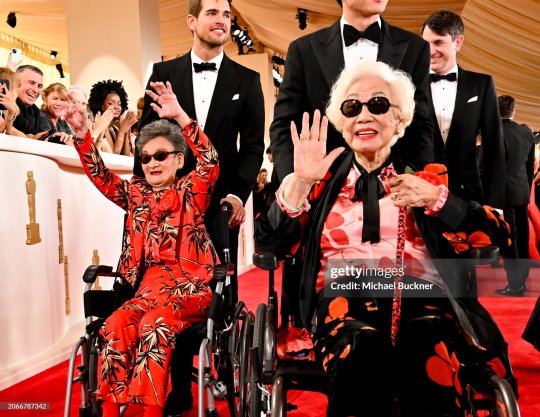
Sean Wang, Chang Li Hua, Sam Davis and Yi Yan Fuei at the 2024 Academy Awards
#sean wang#chang li hua#sam davis#yi yan fuei#red carpet#academy awards#academy awards 2024#oscars#oscars 2024
381 notes
·
View notes
Text
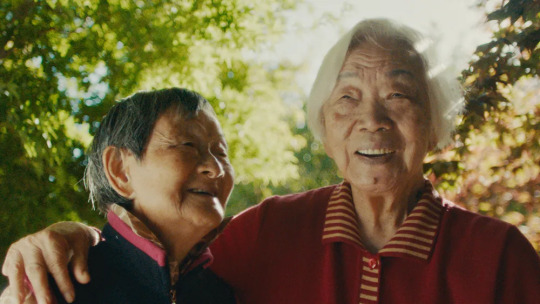


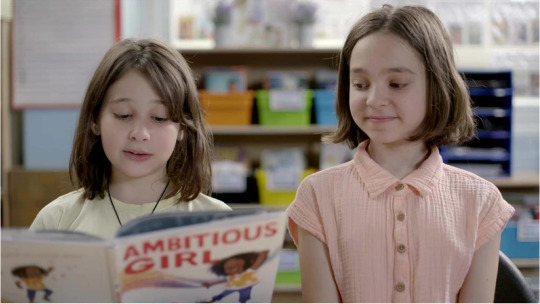

Best Documentary Short Film Nominees for the 96th Academy Awards (2024, listed in order of appearance in the shorts package)
This blog, since 2013, has been the site of my write-ups to the Oscar-nominated short film packages – a personal tradition for myself and for this blog. This omnibus write-up goes with my thanks to the Regency South Coast Village in Santa Ana, California for providing all three Oscar-nominated short film packages.
If you are an American or Canadian resident interested in supporting the short film filmmakers in theaters (and you should, as very few of those who work in short films are as affluent as your big-name directors and actors), check your local participating theaters here.
Without further ado, here are the nominees for the Best Documentary Short Film at this year’s Oscars. The write-ups for the Live Action and Animated Short categories are coming soon. Non-American films predominantly in a language other than English are listed with their nation(s) of origin.
Năi Nai & Wài Pó (2023)
Rarely do both sides of one’s family ever meet. You might expect them to mingle at weddings and funerals. But cohabitation? Such is the case with Taiwanese American director Sean Wang’s two grandmothers in Năi Nai & Wài Pó (paternal and maternal grandmother, respectively), available worldwide on Disney+ and Hulu. Wishing to live closer to family, Wang moved in with his grandmothers Yi Yan Fuei (Năi Nai) and Chang Li Hua (Wài Pó) in their California household during the height of the COVID-19 pandemic. His grandmothers rarely leave the house, even for groceries, and keep their heavy curtains drawn at all hours. As thin beams of sunlight barely stream through the interior’s earthy colors, both grandmothers continue to read the newspaper, sing traditional Chinese music, do their own cooking (I assume someone drops off groceries for them), tease each other about farting in bed, and reflect on their families and their pasts. They know that there are fewer tomorrows remaining, but that will not stop them from living joyously and with love for their grandson, who, though off-screen, they converse with throughout the shoot.
Qualifying for the Academy Awards by wining Best Documentary Short at SXSW in 2023 (in addition to the equivalent prize at AFI Fest), Năi Nai & Wài Pó freely admits that its subjects are playing up their act for their grandson. Observational cinema this is not. But in their sense of exaggerated play there exists a twofold acknowledgement. First, as Năi Nai states, “the days we spend feeling pain and the days we spend feeling joy are the same days spent. So, I’m going to choose joy.” And perhaps most meaningfully to Wang, their playing for the camera is one of many ways they express their love for their grandson. It is an elevated home video, a loving portrait, and a reminder to cherish those who loved us into being.
My rating: 7.5/10
The Barber of Little Rock (2023)
People Trust in Little Rock, Arkansas is a Community Development Financial Institution (CDFI). In other words, it is a non-profit – partially funded by the American federal government – to address issues in creating economic growth and opportunities in some of the most underserved communities in the nation through loans, emergency financial assistance, and housing subsidies. People Trust and its President, Arlo Washington, are the subjects of The Barber of Little Rock (available for free online through The New Yorker), directed by John Hoffman (2021’s Fauci) and Christine Turner (2021’s Lynching Postcards: 'Token of A Great Day'). The film, Oscar-qualified by winning the Grand Prize for Documentary Short at Indy Shorts International Film Festival (Indiana), requires a wealth of context to the issues that it raises, but does not always provide enough – especially how municipal, state, and regional history impacts racism in banking, and vice versa.
Arlo Washington is a fascinating, wonderfully-intentioned person, but the movie spends too much time with him directly stating the piece’s thesis about financial equality and generational poverty to the camera. Most compelling of all were some of the individual appointments at People Trust of regular people simply looking for financial relief or a loan to kickstart a business or make their rent payments. So too Washington's barbering training school – especially a scene when two students are asked to look intently at the other’s faces, to understand the other’s struggles simply through quiet observation. Arlo Washington figures in many of these scenes as well, and those scenes reveal as much, if not more, about the lives of People Trust’s clients than any of his brief lectures can accomplish. Hoffman and Turner clearly had deeply cinematic material to work with that could empower their messaging, and it is a shame they are unable to fully utilize it.
My rating: 7/10
Island in Between (2023, Taiwan)
Ten kilometers away from the Chinese city of Xiamen lies Kinmen, a group of islands under control of Taiwan (the island of Taiwan is 187 kilometers away). Directed and narrated by S. Leo Chiang and distributed by The New York Times, Island in Between is Chiang’s meditation on not only Kinmen’s precarious geography and its political status, but his own identity of being American, Chinese, and Taiwanese – three separate identities that interconnect, but are forever distinct. Like many viewers, I was unaware of Kinmen’s existence before viewing Island in Between. This film is most valuable in introducing audiences to a place in some ways frozen in the mid-twentieth century, not so much capturing the spirit of the place and understanding its history.
During visits to mainland China in the late 2000s, Chiang, Taiwanese-born and American-raised, was struck by how vibrant the mainland was – something unrecognizable from “the communist wasteland [he] learned about in school.” In the years since, the crackdown on Hong Kong’s democracy, the COVID-19 pandemic, and increased political tensions between China and Taiwan have complicated his feelings towards the mainland. As a Vietnamese American, I easily saw parallels between how the younger diaspora views our so-called “motherland”, what we are taught, and how older generations perceive their original home. Even among generations, there are divisions in how we feel about the motherland. But Chiang has the additional complication of being caught between three nations important to his being. If anything, his mentions about his parents and their views feels far too cursory, as they are the ones most responsible for shaping his views about American/Chinese/Taiwanese tensions. One hopes this film is not a harbinger of things to come, as beached tanks rust on the placid Kinmen shore.
My rating: 7/10
The ABCs of Book Banning (2023)
As of the publication of this omnibus write-up, bans and challenges to books in libraries and schools have spiked since 2021. These book challenges, often taken up by parents and certain religious organizations, have disproportionately targeted books by and/or about LGBTQ+ and non-white (especially black) people. Stepping into the debate is MTV Documentary Films’ The ABCs of Book Banning (available on Paramount+), directed by Sheila Nevins, Trish Adlesic, and Nazenet Habtezgh. Unfortunately, the film advocates against book challenges in the most stultifyingly artless way. Early on, a title card reveals that the filmmakers will ask about book banning and restrictions from a group that we have heard little from: children. An honorable approach, but the interview snippets found in The ABCs of Book Banning are repetitive and seem rehearsed – children, aghast at the notion that a selected book is a target, offer reasons why book banning is a terrible idea. Nothing Americans have not heard before. Breaking up their interviews are images of book covers, followed by a brief quotation from said book, and an amateurish “BANNED” or “CHALLENGED” banner in red over the book. Sometimes, cheap animation depicting that book’s passage appears; the placement of these animated sequences has no rhyme or reason.
Damningly, this is a film in search of a structure. A handful of authors whose books have been banned from libraries or schools show up to introduce themselves over what appears to be an interview over Zoom. They say a few sentences about why book banning is terrible and we never hear from them again in the film – a complete waste. I suspect these authors recorded longer interviews, but there is almost nothing that remains of those interviews in the final product. This is a film for those who agree with its premise, have no cinematic taste, and are tediously self-satisfied in how they express their political views.
My rating: 4/10
The Last Repair Shop (2023)
The Los Angeles Unified School District (LAUSD) is the last major city school district in the United States to offer free musical instrument repair to its students. From the Los Angeles Times and Searchlight Pictures comes Ben Proudfoot and Kris Bowers’ The Last Repair Shop (also available on Disney+ and Hulu), which takes us to LAUSD’s repair shop. Just short of the 40-minute limit for short films, The Last Repair Shop curiously tells the viewer preciously little about the shop itself (what are the challenges it is facing, and why is the last of its kind?). Proudfoot and Bowers – both previously nominated in this category for A Concerto Is a Conversation (2021; also available online thanks to The New York Times) – adopt much of the same style as their previous nominee. Both films share talking heads in shallow focus and snappy editing. These aspects sometimes made A Concerto Is a Conversation incohesive, but they work immensely better for The Last Repair Shop. It also helps that The Last Repair Shop, which slowly reveals itself to also be a portrait of a rarely-seen side to L.A., has a clear structure that the viewer can discern early on.
What carries The Last Repair Shop are the life-affirming conversations we have with the four principal interview subjects, all of whom work in a different department at the shop – Dana Atkinson (strings), Paty Moreno (brass), Duane Michaels (woodwinds), and Steve Bagmanyan (pianos; also the shop supervisor, and who inspired the film as he tuned pianos at Bowers’ high school). Whether they play an instrument or not, all four recognize music’s ability to better understand ourselves and others, and as “one of the best things that humans do.” The addition of student voices to the film – especially when one realizes that the repair shop employees almost never hear back from the children whose instruments they repair – strengthens a connection, however distant, through music. The Last Repair Shop’s final minutes provide it that final cinematic touch you might have anticipated, an affirmation of why those who speak the language of music hold it so dear.
My rating: 8.5/10
^ Based on my personal imdb rating. My interpretation of that ratings system can be found in the “Ratings system” page on my blog. Half-points are always rounded down.
From previous years:
88th Academy Awards (2016)
89th (2017)
90th (2018)
91st (2019)
92nd (2020)
93rd (2021)
94th (2022)
95th (2023)
For more of my reviews tagged “My Movie Odyssey”, check out the tag of the same name on my blog.
#Nai Nai and Wai Po#The Barber of Little Rock#Island in Between#The ABCs of Book Banning#The Last Repair Shop#Sean Wang#John Hoffman#Christine Turner#S. Leo Chiang#Sheila Nevins#Trish Adlesic#Nazenet Habtezgh#Ben Proudfoot#Kris Bowers#96th Academy Awards#Oscars#31 Days of Oscar#My Movie Odyssey
3 notes
·
View notes
Text

Nǎi Nai and Wài Pó
directed by Sean Wang, 2023
4 notes
·
View notes
Text
NAI NAI & WAI PO:
Elder sis in laws
Live together in friendship
Dance and fart through day
youtube
#nai nai and wai po#random richards#poem#haiku#poetry#haiku poem#poets on tumblr#haiku poetry#haiku form#poetic#documentary#documentary short#best documentary short#academy award nominee#Yi Yvan Fuei#Zhang Li Hua#sean wang#Youtube
1 note
·
View note
Text
'Nǎi Nai & Wài Pó' Director Sean Wang on Finding Film Inspiration and The Constant Search for Identity
It’s safe to say that director Sean Wang is having an incredible year, despite the fact we’re only two months into it. It’s not everyday that you would receive two of the biggest news of your life all within a week. On January 19th of this year, the Taiwanese American director premiered his debut feature film, Dìdi (弟弟) – meaning “little brother” in Mandarin – at Sundance, winning both the U.S.…

View On WordPress
1 note
·
View note
Text
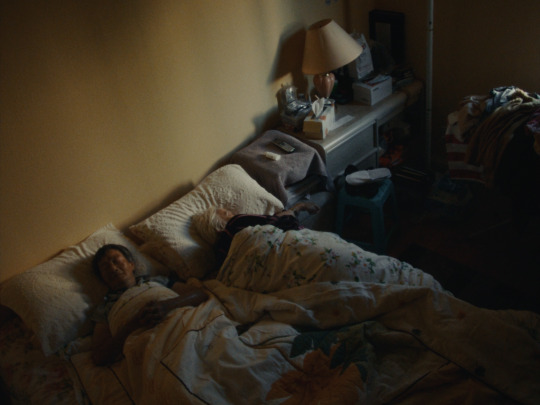
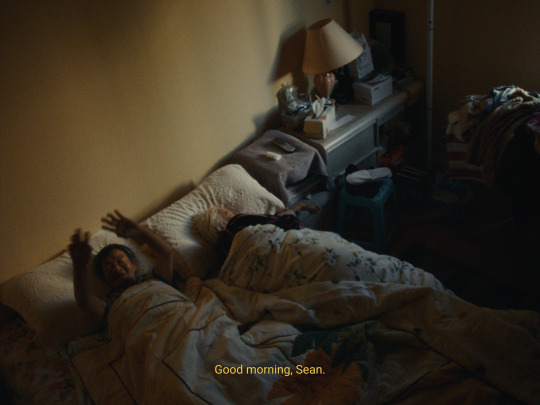

Nǎi Nai & Wài Pó dir. Sean Wang, 2023
#thinking about them <3#oscar nominated documentary short#nǎi nai and wài pó#sean wang#streaming on disney+ and hulu
1 note
·
View note
Text
"Didi"
There isn’t anything particularly memorable about “Didi,” but it’s the heart and warmth of the film that takes writer / director Sean Wang’s coming of age story far. Lending a somewhat unique voice to the immigrant experience, the film embraces that awkward time in a boy’s early teens, set in Fremont, California in 2008.
During his last summer before starting high school, 13-year-old Taiwanese…

View On WordPress
0 notes
Text
Sundance 2024 Reviews: 'Dìdi (弟弟),' 'In the Summers,' 'A Real Pain'
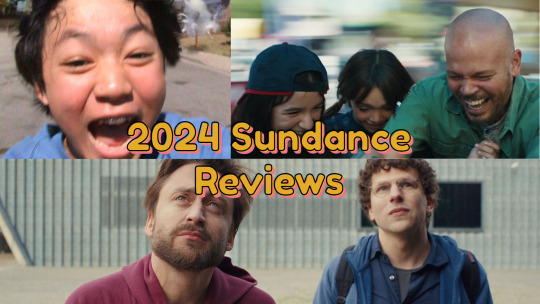
View On WordPress
0 notes
Text
0 notes
Text
youtube
Nǎi Nai & Wài Pó Trailer
Nǎi Nai & Wài Pó is a short documentary from Sean Wang that follows Wang's grandmothers. The title, subtitles, and end credits were designed and animated by Joyce N. Ho.
Nǎi Nai & Wài Pó also serves as a relaunch of Disney's documentary short film series People & Places.
Nǎi Nai & Wài Pó will stream on Disney+ and Hulu in February 2024.
#Nǎi Nai & Wài Pó#nai nai and wai po#sean wang#joyce n ho#people & places#people and places#disney+#hulu#TGCLiz#Youtube
0 notes
Photo





Still Here 還在
Sean Wang
USA, 2020
1 note
·
View note
Text
"Yesterday's" Comic> Runners: Bad Goods #5
BW's "Yesterday's" Comic> Runners: Bad Goods #5
I actually approve of this sci-fi remake of Let’s Be Cops. And I didn’t see the original.
Runners: Bad Goods #5
FINAL ISSUE
Serve Man Press (April, 2005–read the color version here)
WRITER/ARTIST: Sean Wang
(more…) “”

View On WordPress
0 notes
Text
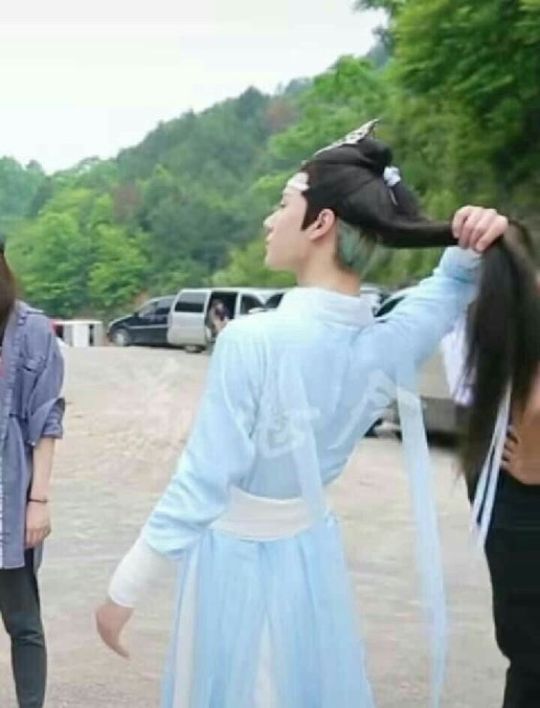




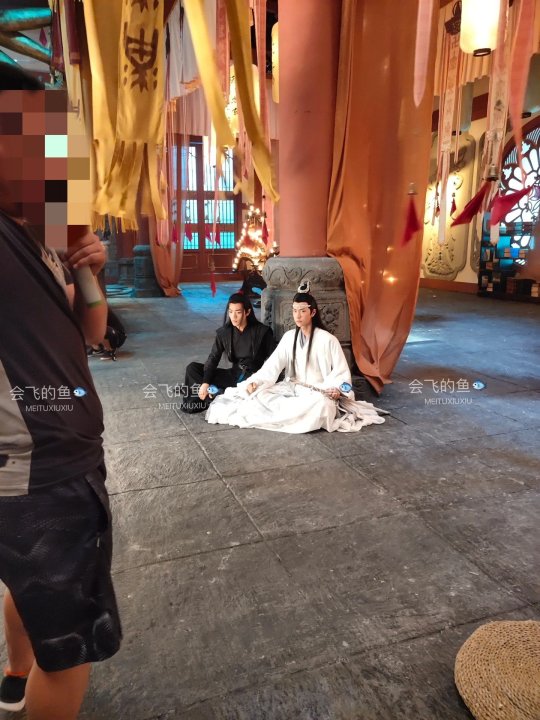
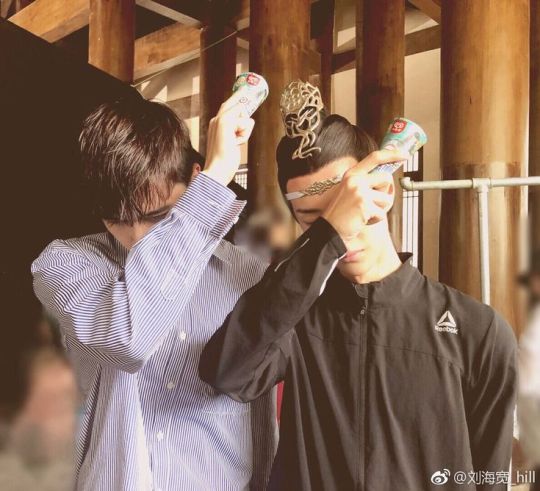



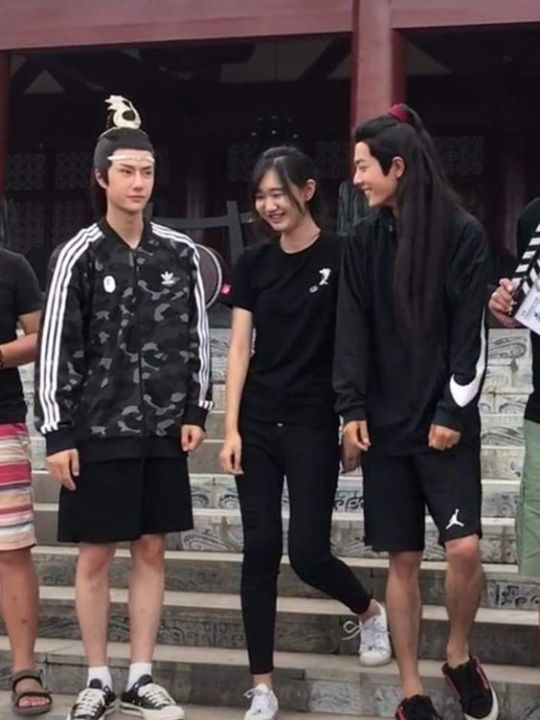



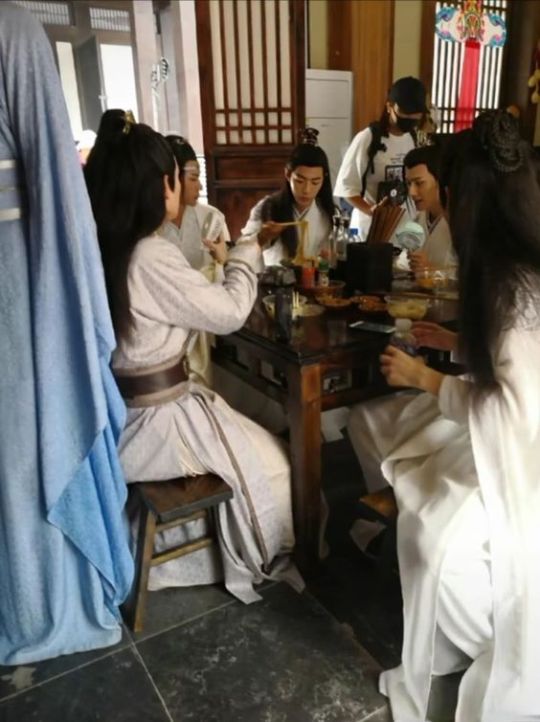
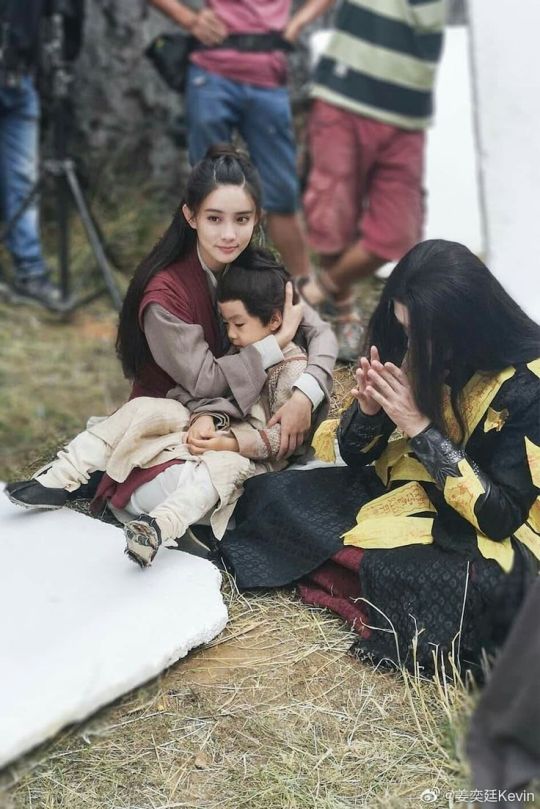
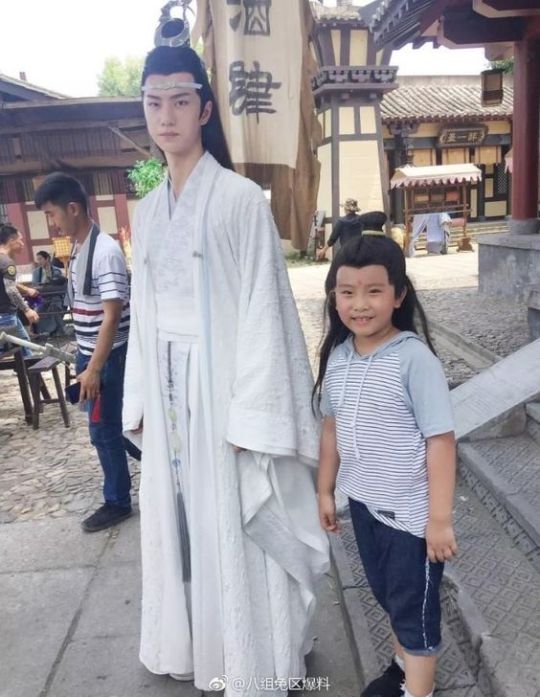






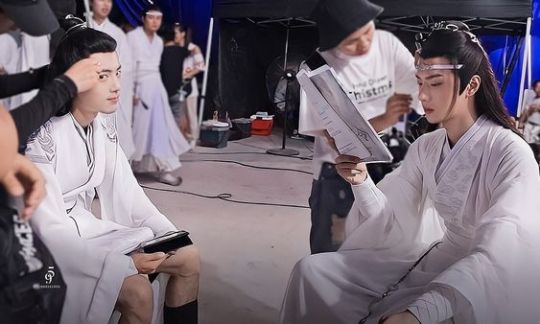



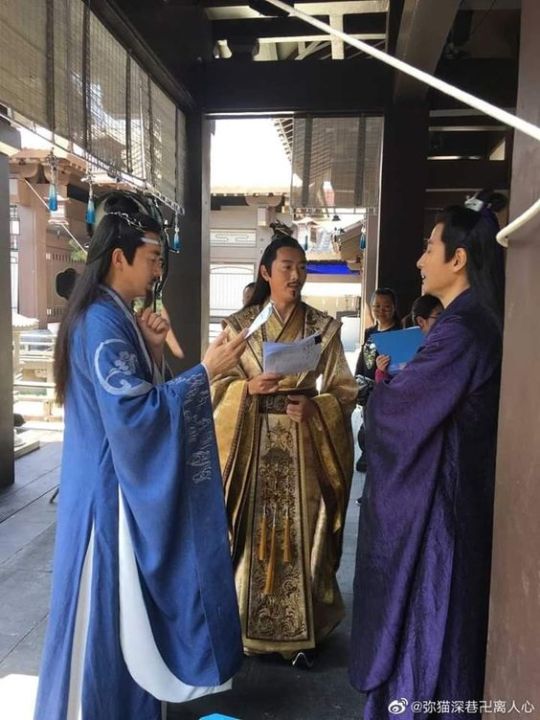
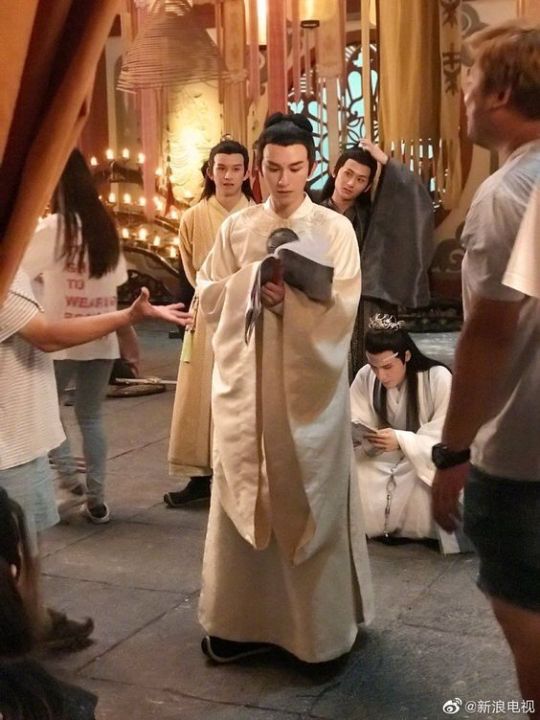
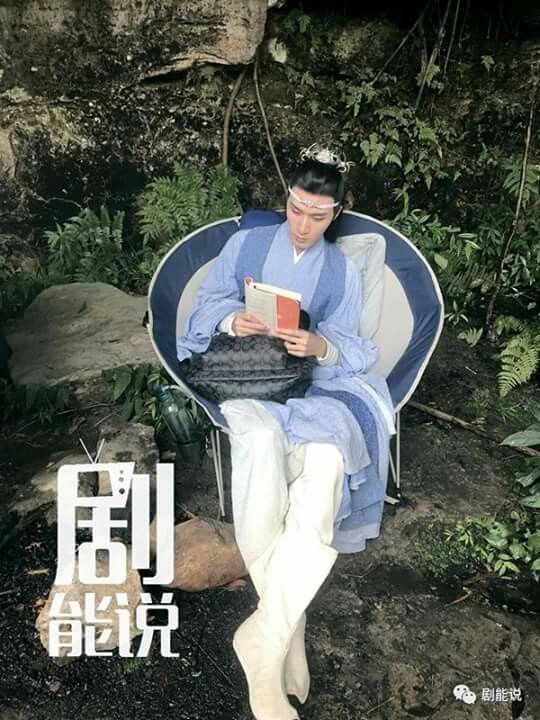
At this point i just live and breathe drama behind the scene pictures, especially The Untamed since they are so funny- It's chaotic. How on earth did they manage to film it in time?
All jokes aside, the whole cast is just amazingly talented and it's a shame that aside from Xiao Zhan and Wang Yibo, no one else has really "skyrocketed". There are so many talented people who deserve better roles, leading roles even.
#xiao zhan#sean xiao#xz#肖战#chinese drama#cdrama#wang yibo#the untamed#tencent video#wangyibo#the untamed cast#theuntamed#the untamed 陈情令#cql#cql bts#untamed bts#the untamed bts#cql cast#陈情令#王一博#王一博wangyibo#uniq 王一博#yibo#wyb#wei wuxian#lan wangji#wangxian#zhu zanjin#wen ning#yubin
1K notes
·
View notes
Text










#mdzs#mdzs art#mdzs donghua#mdzs manhua#mdzs fanart#sean xiao#xiao zhan#lan wangji#wang yibo#wangxian#wei wuixan#wei ying#the untamed
1K notes
·
View notes
Text
They really sneaked past the censorship....
#wang yibo#xiao zhan#sean xiao#wei wuxian#the untamed#cdrama#lan wangji#cql#wangxian#mdzs#the untamed bts
448 notes
·
View notes
Text

#drawing#art#pencil#mo dao zu shi fanart#mo dao zu shi#the untamed fanart#the untamed wei wuxian#the untamed art#wei wuxian fanart#wei wuxian#wei ying#yiling laozu#yiling patriarch#sean xiao#xiao zhan#wangxian#lan wangji#lan zhan#wang yibo#the untamed#mdzs fanart#mdzsedit#mdzs#the grandmaster of demonic cultivation#cql art#cql fanart#cql#cheng qing ling#traditional art
906 notes
·
View notes